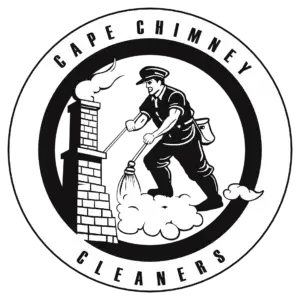Frequently asked questions (faq)
Quick Answers.
Several warning signs indicate it’s time for a chimney sweep:
- Creosote buildup: Creosote, a tar-like substance, can accumulate in your chimney over time, significantly increasing the risk of a chimney fire. It’s essential to remove this highly flammable residue to ensure safety.
- Soot buildup: Excessive soot can not only contribute to chimney fires but also reduce your fireplace’s efficiency. Regular chimney cleaning helps maintain optimal airflow, preventing blockages.
- Unusual smells or sounds: If you notice strange odors, like a burnt wood smell, or hear unusual sounds from your chimney, it could indicate an issue such as a blockage or animal nesting.
- Reduced heating efficiency: A dirty chimney restricts airflow, causing your heating system to work harder. This can lead to higher energy bills and inefficient heating.
If you notice any of these signs, schedule a chimney inspection to determine the best course of action.
The frequency of chimney sweeping depends on various factors:
- Usage: If you use your fireplace or wood-burning stove frequently, especially during winter, it’s recommended to schedule a sweep at least once a year.
- Fuel type: Burning wood produces more creosote compared to gas, requiring more frequent cleanings.
- Chimney condition: Older or damaged chimneys may need more frequent inspections and cleanings to ensure they function safely.
As a general rule, it’s best to have your chimney cleaned annually to maintain safety and efficiency.
The duration of a chimney sweeping service varies based on several factors:
- Chimney size: Larger chimneys may take longer to clean thoroughly.
- Creosote buildup: If your chimney has significant creosote or soot accumulation, the cleaning process may require additional time.
Typically, a standard chimney sweep takes anywhere from one to two hours. Our team ensures a thorough cleaning while minimizing disruption to your home or business.
Our comprehensive chimney sweeping service includes:
- Chimney inspection: We start with a detailed inspection to assess the condition of your chimney and identify any issues, such as blockages or damage.
- Creosote and debris removal: Using specialized tools, we remove creosote, soot, and other obstructions that can compromise your chimney’s safety.
- Final inspection: After cleaning, we perform a final check to ensure your chimney and fireplace are operating efficiently and safely.
Our goal is to provide a safe, clean, and efficient chimney for your home or business.
Yes, Cape Chimney Cleaners offers emergency chimney sweeping services for urgent situations. If you suspect a chimney fire, carbon monoxide issue, or notice a severe blockage, contact us immediately. Our team is ready to address emergency issues quickly to protect your property.
Our chimney sweeping prices vary depending on factors such as:
- Chimney size
- Amount of creosote buildup
- Your location
We provide customized pricing plans to meet your specific needs. Rest assured, our rates are competitive, and we aim to deliver exceptional value with our services.
Yes, we offer thorough chimney inspections to help detect potential issues early. Our inspections ensure that your chimney is in good condition, identify necessary repairs, and recommend a maintenance plan to prevent costly damages.
Absolutely! Cape Chimney Cleaners offers a full range of chimney repair services, from fixing cracks and damaged flue liners to repairing structural issues. Our experienced technicians can handle everything from minor repairs to full chimney restorations.
Yes, we provide chimney liner installation services. Chimney liners are essential for improving the safety and efficiency of your chimney, as they protect your chimney walls from heat and prevent dangerous gases from entering your home.
Yes, we can safely remove bird nests and other obstructions from your chimney. Birds nesting in your chimney can block airflow, increase fire risk, and cause harmful carbon monoxide buildup. Our team uses humane methods to remove these obstructions and prevent future nesting.
